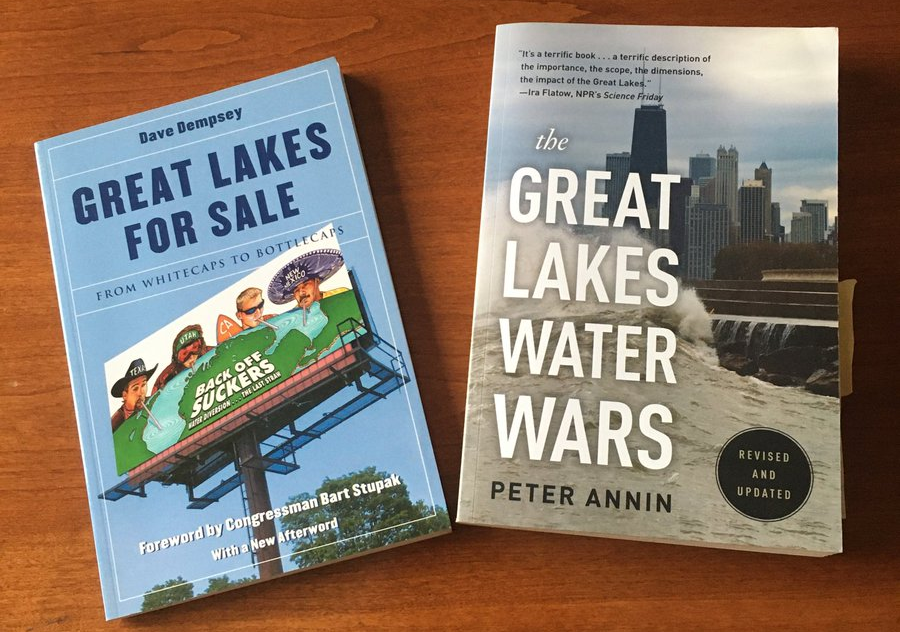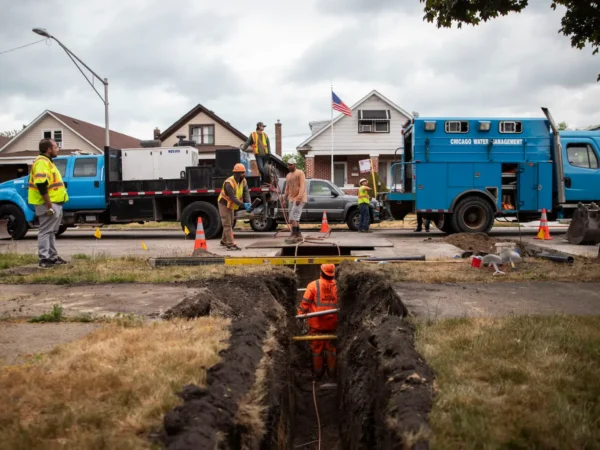
Unlike most issues in the Great Lakes region that seem never-ending, like algal blooms and Asian carp, the debate over shipping water to dry areas of the country seemed resolved.
That is, until recently when a Minnesota company took the initial steps to determine the feasibility of withdrawing and shipping 500 million gallons of groundwater annually to Colorado.
The company, Empire Builder Investments, would transport the water via rail tanker, but it is unclear what it would be used for, according the Minneapolis Star Tribune.
Minnesota responded quickly, with Department of Natural Resources Commissioner Sarah Strommen saying she did not see a scenario that would lead to a permit to divert water from the aquifer, the Associated Press reported.
Empire Builder Investments’ president, Dave Fellon, declined to answer questions, citing his travel schedule.
The Minnesota DNR did not respond to a request to comment.
Diversion deja vu
The Minnesota diversion request appears to be dead on arrival, but it is eerily similar to the 1998 request by the Nova Group to ship Lake Superior water to Asia.
That request was not a secret, but it flew under the radar and a permit was granted by Ontario. The permit was later withdrawn based on outrage from Great Lakes states and activists.
It also put a spotlight on the real threat that Great Lakes water could be shipped around the world and there might not be anything to stop that from happening.
It began a process that culminated in the 2008 signing of the Great Lakes Compact, an agreement among the eight Great Lakes states that banned large-scale diversions. Ontario and Quebec signed similar agreements.
And all has been quiet since, save for a few small basin-border diversion skirmishes in Waukesha and Racine, Wisconsin.
But now this request to divert water to Colorado means that arid regions haven’t given up on the Great Lakes yet.
Wake up call for governors?
“I think this may be the new wake-up call that the region needs,” said Lynn Broaddus, a Minneapolis-based water consultant who, when in Milwaukee, helped secure passage of the compact.
“The Great Lakes Compact is strong, but the Colorado incursion is a reminder that the Great Lakes do not stand alone,” she said, referring to the interconnected nature of groundwater, rivers and streams to the lakes.
This won’t be the last of the “profit-minded outsiders” who want to tap the region’s water, according to Broaddus. She said the time is now to start work on a next-generation of the Compact that takes a more comprehensive look at the region’s water resources.
A Michigan water attorney agrees.
“The water train to Colorado proposal should prompt Great Lakes governors to take a hard look at the Compact for weaknesses,” said Jim Olson, founder and president of For Love of Water.
“FLOW is close to completing a report with comments on weaknesses that the states should address,” said Olson.
Great Lakes Water Wars author Peter Annin is less certain that the Great Lakes are vulnerable to probes from western states as they explore options that don’t include diversions, but that doesn’t mean the region should become complacent, he told Great Lakes Now.
“Thanks to the compact, the Great Lakes have never been better protected from long-range, large-scale diversions,” Annin said.
But he cautioned that regions with unsustainable water practices will continue to prompt people to look to the Great Lakes.
“The (Great Lakes) region needs to remain vigilant, and the Minnesota water railway export scheme is the latest case in point,” said Annin.
Tepid response
Wisconsin Gov. Tony Evers currently chairs the governors group responsible for the Great Lakes Compact.
“After 11 years of Great Lakes Compact implementation, Wisconsin believes the compact is effective and has improved our management and protection of water quantity within the Great Lakes Basin,” said Wisconsin DNR spokesperson Andrew Savagian.
Michigan Gov. Whitmer’s office did not comment on the diversion of water issue deferring to the Department of Environment, Great Lakes & Energy, which did not respond.
FLOW senior policy adviser Dave Dempsey has been tracking water diversions going back to the Nova Group request and has written extensively on the issue.
“I don’t think the new Great Lakes governors have even thought about water diversion issues and the Great Lakes Compact yet,” said Dempsey.
2 Comments
-
no diversions–they will eventually suck our water dry, and our wet lands too let alone how it will effect our wild life
-
Why not ship the excess water? The lakes are rising. Houses are falling into the lakes. Use trains and truck to ship it. Price it accordingly. See if it is economically advantageous to building desalination plants. This wouldn’t require building a pipeline. You can always stop the flow when the water levels come back to normal. Water is a precious commodity that can be allocated economically.




